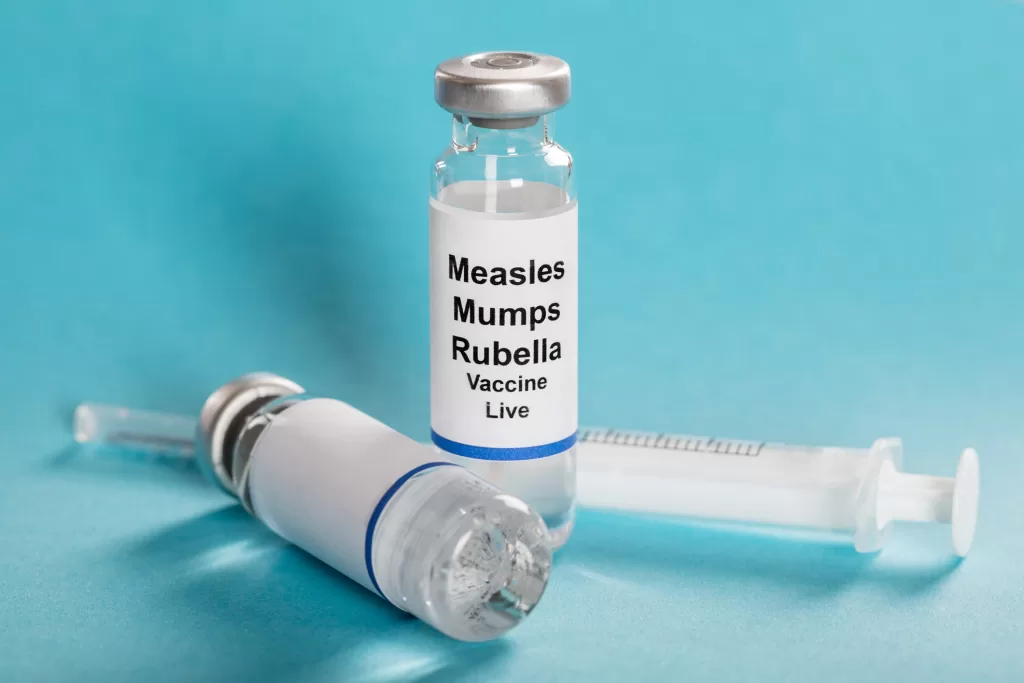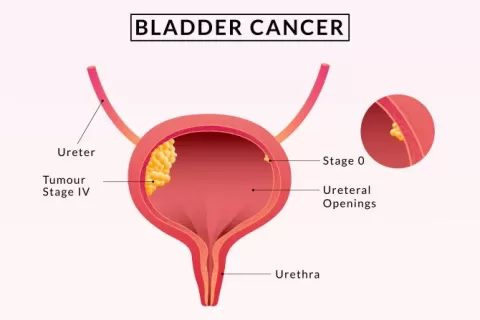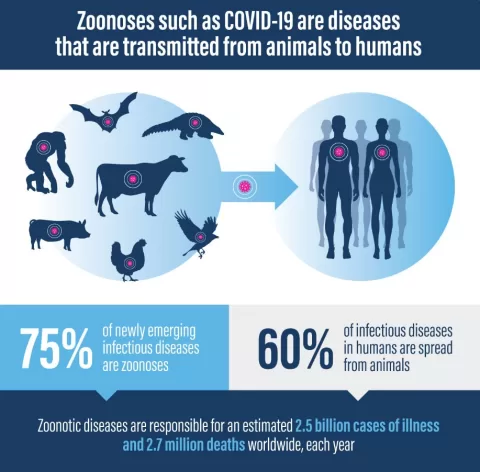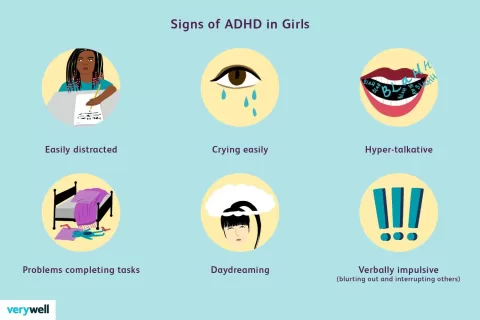The rise in measles cases across the United States has sparked renewed interest in the measles vaccine, particularly among concerned parents. As reports of measles outbreaks in states like Texas and New Mexico gain traction, pediatricians are noting an influx of inquiries regarding the MMR vaccine, which protects against measles, mumps, and rubella. This uptick in curiosity reflects a broader urgency surrounding vaccination rates, especially as communities grapple with vaccine hesitancy. With the Centers for Disease Control and Prevention recommending early vaccination, some parents are now eager to immunize their children against this highly contagious virus sooner. In light of these measles outbreaks, the call for higher vaccination rates has never been more pressing, as families navigate the implications for their children’s health and safety.
As the trend evolves, a surge in public awareness surrounding the MMR immunization is becoming prominent amid the ongoing health crisis. The implications of a measles outbreak resonate not just with direct victims but also with communities facing lower immunization levels. Recent discussions spotlight a shift in parental attitudes, revealing a willingness to consider earlier immunization against measles in the face of uncertainty. Concerns pertaining to vaccine accessibility and a desire for proactive health measures are at the forefront, as families prepare for potential exposure during their travels. This growing enthusiasm for vaccinations underscores a critical juncture for public health as communities confront the specter of vaccine hesitancy.
The Importance of Vaccination in Combating Measles Outbreaks
Vaccines are pivotal in controlling preventable diseases like measles. With the recent outbreaks in states like Texas and New Mexico, the significance of maintaining high vaccination rates has never been clearer. Measles, which was declared eliminated in the United States in 2000, has re-emerged primarily in communities with low immunization coverage. This increase in measles cases underscores the urgency for parents to get their children the MMR vaccine, which protects against measles, mumps, and rubella.
Early vaccination is key to preventing the spread of measles, especially in hotspot areas where outbreaks are reported. Parents need to be aware that the first dose of the MMR vaccine is recommended between 12 and 15 months of age. However, there is increasing interest among parents in vaccinating younger children as soon as safely possible, particularly if there is concern about exposure during travels or gatherings. This proactive approach could significantly curb the risk of contracting measles.
Overall, ensuring that children are vaccinated against measles is a community responsibility. By protecting individual children through vaccinations, we contribute to herd immunity and protect those who cannot be vaccinated due to medical reasons, further promoting community health.
Even with vaccine hesitancy on the rise, many families are realizing the need for more robust immunization practices, especially in light of recent outbreaks. It is crucial for healthcare professionals to continue educating parents on the safety and efficacy of the MMR vaccine to mitigate fears surrounding vaccination.
Addressing Vaccine Hesitancy: A Path to Higher Vaccination Rates
Vaccine hesitancy remains a significant barrier to achieving optimal vaccination rates in the U.S. As recent studies indicate, approximately 1 in 5 U.S. parents express concern regarding vaccinations. This hesitancy can be attributed to misinformation, fears, and a general distrust in the medical community. To combat this, healthcare professionals must prioritize clear communication with families about the benefits and safety of the MMR vaccine, especially in the context of the current measles outbreaks.
Efforts to increase awareness about vaccination can significantly influence public perception. Social media campaigns, community outreach programs, and direct conversations between doctors and families can play an essential role in reducing vaccine hesitancy. For instance, pediatricians can share statistics about the effectiveness of vaccines in preventing outbreaks, including the measles resurgence tied to decreased vaccination rates. Building trust through transparency can help reassure parents about the necessity of vaccinating their children.
In addition, educational sessions in schools and community centers can foster understanding around vaccines. By providing parents with easy access to accurate information, we can alleviate concerns surrounding vaccination and encourage timely immunization. Improving vaccination rates is not solely the responsibility of healthcare providers; it is a collective effort that involves educating communities about the importance of vaccines like the MMR vaccine to protect public health.
Ultimately, addressing vaccine hesitancy with empathy and factual information can lead to better immunization outcomes. As more families choose to vaccinate their children, the likelihood of controlling outbreaks and improving community health rises.
Understanding the benefits of vaccination and addressing concerns about vaccine timing can also assist frustrated parents who are unsure about when to have their children vaccinated.
Traveling Amidst Measles Outbreaks: The Need for Early Vaccination
As families plan spring break trips, traveling to areas with known measles outbreaks raises the stakes for vaccination. Parents are increasingly seeking early administration of the MMR vaccine for their children, especially if they have travel plans to states with reported cases. Understanding that the first dose of the MMR vaccine can be administered as early as 6 months for infants traveling to outbreak areas creates an opportunity for protection before potential exposure.
The concern for safety drives many parents to inquire about early vaccination, reflecting a shift towards proactive health measures. Pediatricians have reported spikes in requests for early immunization consultations, highlighting the need for easily accessible vaccination options. The more parents are educated about their options, the better prepared they are to navigate potential health risks when traveling.
Traveling during outbreaks can be daunting for families and reinforces the importance of vaccination planning. Parents wanting to take trips to areas with lower vaccination rates should not overlook the risks associated with exposure to measles. Taking steps to vaccinate their children before travel can significantly reduce the likelihood of contraction, offering peace of mind as they embark on their vacations.
By combining early vaccination strategies with thorough planning, families can enjoy their travels with less anxiety about encountering diseases like measles. Ensuring children are vaccinated before travel empowers families to make informed decisions that protect health while still enjoying their adventures.
The Role of Healthcare Providers in Increasing Vaccination Rates
Healthcare providers play a crucial role in combating vaccine hesitancy and ensuring high immunization rates against measles. As trusted figures, pediatricians and other healthcare professionals are often the first point of contact for parents seeking guidance on vaccinations. By providing accurate information, addressing fears, and clarifying misconceptions about the MMR vaccine and its importance amid rising measles cases, providers can significantly influence parental decisions.
In light of the recent outbreaks, healthcare providers must adopt a proactive approach, emphasizing vaccination as a community health essential. They should encourage regular check-ups where vaccination status is assessed, and any gaps in immunization schedules are addressed promptly. Open dialogue about the benefits of the MMR vaccine, especially the potential dangers of measles outbreaks, can empower parents to protect their children through timely vaccinations.
Moreover, healthcare providers can utilize resources such as state immunization registries to monitor vaccination rates and identify under-immunized populations. Collaborating with community organizations, they can promote awareness campaigns that target areas with lower vaccination rates and reinforce community involvement in vaccination initiatives. By fostering a supportive environment, healthcare providers can help reduce vaccine hesitancy and boost immunization rates.
Through education and advocacy, healthcare professionals can become champions for public health, leading the charge to ensure all children have the opportunity to receive the MMR vaccine and safeguard against preventable diseases like measles.
Understanding the MMR Vaccine: Safety and Efficacy
The MMR vaccine is a safe and effective measure in protecting against measles, mumps, and rubella. Extensive research and monitoring have shown that common side effects are mild, such as soreness at the injection site or a low-grade fever, while serious side effects are exceedingly rare. Despite the growing vaccine hesitancy, it is essential to communicate the extensive safety data available to reassure parents that the benefits of vaccination outweigh the risks.
Moreover, the effectiveness of the MMR vaccine in preventing outbreaks is well documented. Before its introduction, measles was a leading cause of infectious disease death among children in the U.S. The current increase in measles cases reinforces the need for widespread vaccination to achieve herd immunity, which protects those who cannot be vaccinated due to medical contraindications. Equipping parents with this knowledge can foster more significant trust in the vaccination process and encourage compliance.
It’s also vital to clarify the timelines for the MMR vaccine’s administration. With the first dose being recommended at 12 to 15 months and the second between ages 4 and 6, parents should understand the importance of adhering to these guidelines to ensure full immunity. It’s not just about individual protection; timely vaccinations are essential for community health.
By demystifying the MMR vaccine and presenting its robust safety profile, healthcare providers can play a pivotal role in reducing vaccine hesitancy and promoting higher vaccination rates.
Community Impact of Low Vaccination Rates: Risks and Consequences
Low vaccination rates have dire implications for community health, particularly in light of increasing measles outbreaks. Communities with vaccination rates dropping below 95% are prone to rapid disease spread, as seen in recent outbreaks in multiple states. The resurgence of diseases once considered eliminated urges all parents to recalibrate their perception of vaccination, reinforcing it as a critical public health measure.
The risks associated with low vaccination rates extend beyond immediate outbreaks. Children who are unvaccinated not only put themselves at risk but also jeopardize those who are unable to receive vaccines, such as infants or individuals with certain health conditions. This highlights the need for a collective commitment to maintaining strong immunization rates within communities. By working together to ensure every child receives vaccinations like the MMR vaccine, communities foster safe environments that protect public health for all.
Further, public health education on the importance of vaccination can empower community members to advocate for improved vaccination rates. Parents who have vaccinated their children can share their experiences and motivate hesitant friends and family to seek vaccinations, accelerating the drive toward higher community immunity.
Ultimately, proactive approaches in improving vaccination rates are essential. By understanding the implications of low vaccination rates, communities can take meaningful steps towards safeguarding against preventable diseases like measles.
The Interaction of News and Public Perception on Vaccination
In an age where news travels fast, media reporting often influences public perception regarding health decisions, including vaccinations. Recent measles outbreaks have heightened awareness about the importance of vaccines, leading some parents to proactively seek vaccinations for their children. The correlation between news coverage and vaccine interest illustrates the power of media in driving public health discussions.
In the current environment, where vaccine criticism is gaining traction, especially with influential voices questioning their safety, it’s crucial for health professionals to engage with communities and dispel misinformation. Providing statistics, evidence, and personal anecdotes regarding the safety and benefits of the MMR vaccine can help counter doubts stirred by negative press. Health professionals should seize the opportunity to provide accurate, reassuring information to parents who may be swayed by alarming headlines.
Additionally, covering the consequences of low vaccination rates in news outlets could further assist in shaping public attitudes towards vaccination positively. Collaborative efforts between healthcare professionals and media organizations can mitigate vaccine hesitancy by focusing on the benefits of vaccination and the community’s overall health.
By fostering an environment where factual, science-backed information prevails, communities can build a stronger defense against misinformation. Emphasizing the benefits of the MMR vaccine in the media will encourage informed decisions among parents and potentially lead to increased vaccination rates.
Legislative Efforts and Their Impact on Vaccination Rates
The role of legislation in shaping vaccination rates cannot be overstated. In recent years, various states have introduced bills aimed at either increasing vaccination requirements or providing exemptions. As states grapple with measles outbreaks, lawmakers are faced with the urgency to reinforce immunization laws. Understanding the implications of various legislative changes helps parents navigate their rights and responsibilities concerning vaccination.
Stronger legislation can contribute significantly to higher vaccination rates by removing barriers that allow vaccine exemptions. Mandating vaccinations to enroll in schools, for instance, can encourage parents to comply for their children’s health and the greater good of the community. By fostering a culture of adherence to vaccination laws, communities may experience a substantial decrease in preventable diseases, including measles.
Moreover, public education campaigns accompanying legislative changes can assist in shaping parental attitudes towards vaccination. Clear communication about the rationale behind legislative actions, backed by scientific evidence, can help alleviate fears and misconceptions. Such initiatives are crucial as they provide a comprehensive approach to not only enforce vaccination laws but also educate the population on their benefits.
Through impactful legislation paired with strong public health education efforts, communities can achieve higher vaccination rates, ultimately protecting against outbreaks and ensuring the health and safety of children across the nation.
Frequently Asked Questions
What is the MMR vaccine and why is it important during measles outbreaks?
The MMR vaccine protects against measles, mumps, and rubella. It’s crucial during measles outbreaks because it helps establish herd immunity, reducing the spread of the virus in communities where vaccination rates are low.
Can I vaccinate my child against measles earlier than the recommended age?
Yes, while the MMR vaccine is typically given between 12 and 15 months, children as young as 6 months can receive it in outbreak areas or if traveling abroad, according to the CDC. Consult your pediatrician about early vaccination options.
How do measles vaccination rates impact the spread of the virus?
Low vaccination rates, such as the 88.1% rate seen in Florida, significantly increase the risk of measles outbreaks. It’s vital to maintain at least a 95% vaccination rate to effectively prevent these outbreaks and protect unvaccinated individuals.
What has contributed to the rise in vaccine hesitancy regarding the measles vaccine?
Factors contributing to vaccine hesitancy include misinformation, personal beliefs, and perceived risks associated with vaccinations. Reports of side effects and influential public figures voicing skepticism about vaccines have also affected parental attitudes.
What should parents know about the current measles outbreaks in the U.S.?
Currently, several states, including Texas and New Mexico, are experiencing significant measles outbreaks. Parents should be aware of these outbreaks, particularly if they live in or plan to travel to areas with low vaccination rates.
What can I do to protect my child from measles during an outbreak?
Ensure your child is vaccinated with the MMR vaccine on schedule. If your child is under 12 months and travels to an outbreak area, consult your pediatrician about the possibility of early vaccination.
Are there any travel considerations related to the measles vaccine?
Yes, families traveling to areas with known measles outbreaks should consult their pediatrician about early vaccination for children under one year old to ensure protection against the highly contagious virus.
How do recent news and political changes influence vaccination rates and public sentiment?
Political changes and media coverage can significantly impact public perceptions of vaccination. With prominent figures expressing skepticism about vaccines, some families may feel uncertain about vaccination, potentially leading to increased vaccine hesitancy.
What should I do if I am concerned about measles vaccination for my child?
If you’re concerned about the measles vaccine, discuss it with your pediatrician. They can provide scientific information, address your concerns, and recommend an appropriate vaccination schedule for your child’s health.
How does the rise in measles cases reflect on the importance of vaccination?
The rise in measles cases highlights the importance of maintaining high vaccination rates to prevent outbreaks. Vaccination is the most effective tool in controlling the spread of measles and protecting public health.
| Key Points |
|---|
| Measles outbreaks are currently reported in multiple U.S. states, notably West Texas and New Mexico, with over 400 confirmed cases, sparking increased interest in the measles vaccine among parents. |
| Parents are inquiring if they can vaccinate their children earlier than the typical schedule of 12-15 months for the first dose of the MMR vaccine due to rising cases. |
| Recent statistics indicate kindergarten vaccination rates in Florida have dropped to 88.1%, below the 95% threshold needed to prevent measles outbreaks. |
| Pediatricians report increased calls for MMR vaccinations from families, especially with children under 12 months due to concerns about upcoming travel plans and local outbreaks. |
| Concerns about vaccination accessibility have grown amid fears surrounding the leadership of Robert F. Kennedy Jr. and his criticisms of vaccines. |
| Despite increased vaccine interest, there’s a worrying trend of vaccine hesitancy, with 1 in 5 U.S. parents expressing reluctance to vaccinate their children. |
Summary
The measles vaccine is gaining renewed attention as cases of the virus rise across the United States. Increasing inquiries from parents about the measles, mumps, and rubella (MMR) vaccine indicate a significant shift in attitudes towards vaccination amidst concerns about recent outbreaks. Ensuring widespread vaccination is crucial to prevent the resurgence of measles and protect public health, particularly as we approach high-travel seasons and encounter varying vaccination rates across states.
The content provided on this blog (e.g., symptom descriptions, health tips, or general advice) is for informational purposes only and is not a substitute for professional medical advice, diagnosis, or treatment. Always seek the guidance of your physician or other qualified healthcare provider with any questions you may have regarding a medical condition. Never disregard professional medical advice or delay seeking it because of something you have read on this website. If you believe you may have a medical emergency, call your doctor or emergency services immediately. Reliance on any information provided by this blog is solely at your own risk.







